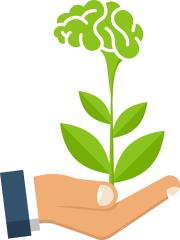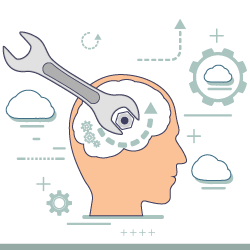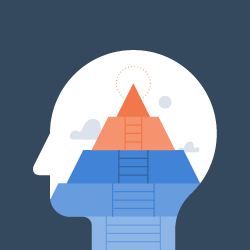How do we help young people develop thinking skills?

Dr. Osama Ibrahim
Creativity
30

How do we help young people develop thinking skills?
What kind of thinker is your son/daughter?
- Does he believe that everything he reads or sees on TV is true?
- Does he or she always figure out how to get what he or she wants?
- Does he follow what his friends say or suggest to him?
Parents can help their children develop critical thinking skills by learning some basic guidelines. Whether your child is just starting summer vacation or in the middle of the school year, parents can help their children keep their minds active in a fun way.
We should know that critical thinking skills do not develop fully until adolescence, but parents can still lay the foundations for good thinking in their younger children. Parents can work to develop the basic intellectual virtues that lead to critical thinking.
In general, there are three ways of thinking that young people usually follow:
- Some young people think in a naive way. We indirectly teach our children that there is no need for them to think, because we will think for them. Many children believe everything they are told, or everything they hear on TV, without asking many questions about the truth or accuracy of what they hear or read.
- Some of them think in a selfish way, they think a lot to get what they want; some believe in getting everything necessary to achieve their personal goals, regardless of whether this harms others.
- Some people think with fair minds. They think a lot because it helps them learn. They often do not believe everything that others say or what they see and hear on TV. They think "how others think" and not just how they think themselves. They have the drive to understand others and try to put themselves in their shoes.
What is "critical thinking"?
Critical thinking includes a number of different skills that help us learn how to make decisions. It refers to the ability to evaluate information to determine whether it is right or wrong. To think critically about an issue or problem means being open-minded and considering alternative ways to reach a solution. As children grow into pre-teens, developing critical thinking skills will help them make judgments independent of their parents. For children to think well, they need to recognize that thinking is fun and want to do it well as a fun and exciting activity. Parents can make thinking fun throughout the school year, as well as during the summer and vacations, just as going on a picnic or playing soccer is.
Five Ways to Help Kids Think Critically:
There are five Intellectual Standards for developing “critical thinking” that parents should learn first, and then help their children acquire starting from the elementary stage. Parents should understand these standards, teach them to their children, and interact with them in a way that reinforces these five standards.
1. Clarity: TO BE CLEAR
Ask your child to be “clear” and to have “clear” statements and words, and when he/she hears something he/she doesn’t understand, to ask for explanations and examples. Let your child know that it’s okay to be confused and to ask questions.
2. Accuracy: TO BE ACCURATE
Encourage your son/daughter to "be accurate," to check whether something is true or not, by investigating the facts in what is said.
3. OCCASION TO BE RELEVANT
Encourage your son/daughter to understand the distinction between information that is relevant to the topic or issue under discussion, and help him/her stay on track by linking relevant and meaningful information to reach the answer to the question or issue at hand, and identifying irrelevant and unhelpful information.
4. TO BE LOGICAL
Support your child's ability to "make sense" by helping him/her see how things fit together. Ask your child to understand "how" he/she came to his/her conclusions, whether his/her assumptions are correct, and how he/she checks this.
5. TO BE FAIR
Help your son/daughter be fair by fostering empathy in his/her thinking processes. That is, we should help him/her consider other people's points of view and how they see things differently when drawing conclusions.
Here, it must be emphasized that educators and parents must speak with children in a common language about the standards of critical thinking, and employ them throughout the year, especially during the summer months, in conjunction with all daily activities. Then, your child’s mind will learn to think critically about the world.
Moral Thinking:
What many parents do not pay attention to is the development of moral thinking in children from early childhood. Moral thinking is the process by which an individual tries to determine the difference between what is right and what is wrong using logic, and it means the child’s awareness of the values of justice, equality, right, and public benefit. We must raise children to be sensitive to moral issues and to have the ability to determine what is right in moral dilemmas. Many children grow up to prioritize personal self-interest over public benefit, so they tend to harness their intelligence and talents for their own benefit, and to put this benefit before the public good (if it conflicts with it).
Promote Actively Open-Mindedness Thinking:
The tendency toward unbiased thinking and decontextualized thinking patterns that support the tendency to evaluate opinions and evidence in a way that is not influenced by one's preconceived beliefs are among the most important characteristics of critical thinking. Many researchers in the field of critical thinking have considered the tendency to think from the side of one's disapproval and not to allow differences of opinion to influence one's thinking, the ability to accept opinions that do not agree with one's own opinion if they are proven correct, the ability to recognize the incorrectness of one's own opinions, the potential for bias in those opinions, and the risk of evaluating evidence according to one's own preferences, all of these are important characteristics of critical thinking and are characteristic of individuals who think critically.
Thinking tendencies and mental abilities vary in their degree of malleability. Critical thinking abilities, as measured by reasoning and mental ability tests, may be more difficult to change significantly than critical thinking tendencies, which can be more influenced. I see interest in modifying the tendency toward active open-minded thinking as a cognitive learning outcome that indicates the growth of critical thinking skills. This type of thinking, in addition to being learnable and malleable, involves mental processes that lead to the formulation of highly significant epistemological beliefs and more consistent networks to ensure better choices of action.
This open, context-free thinking style is a strong sign of cognitive independence and personal maturity; a student who is able to practice flexible, unbiased, rational thinking and who is able to evaluate opinions and issues in a logical manner is someone who has a high degree of independence and self-awareness, and this is often what characterizes a productive and successful personality.
Did you benefit from the information provided on this page?
visitors liked this page



